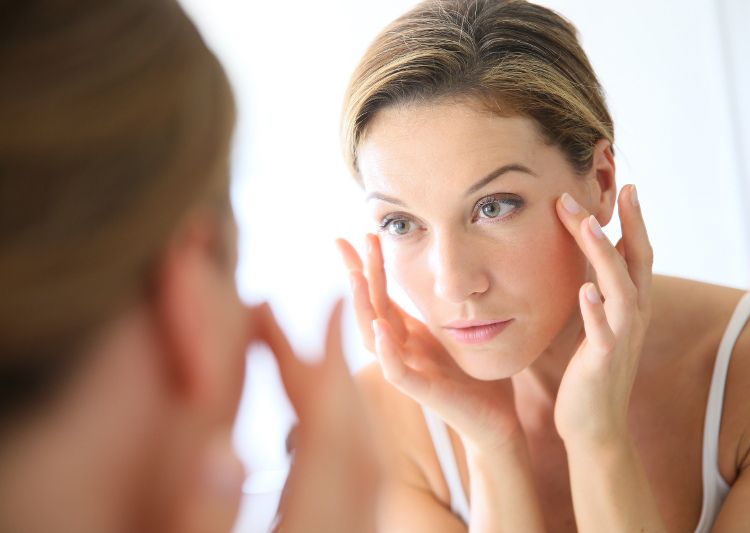Krill oil supports skin barrier function according to recently published studies
Results showed that both doses of krill oil significantly reduced TEWL, and increased hydration as well as elasticity compared to placebo.
Photo © Shutterstock.com/goodluz

Two studies recently published together have found that krill oil supplementation may support skin barrier function. The two randomized, placebo-controlled, pilot studies investigated whether 1 g or 2 g of krill oil (Superba Boost from Aker BioMarine) impacted transepidermal water loss (TEWL) in healthy adults, with skin hydration, elasticity, and omega-3 index acting as secondary outcomes. Results showed that both doses of krill oil significantly reduced TEWL, and increased hydration as well as elasticity compared to placebo. Additionally, there was a significant linear relationship between these improvements and changes in participants’ omega-3 index.
The researchers explain that good TEWL and hydration are indicative of a robust barrier function, which helps to safeguard against external irritants and supports processes such as cell turnover and repair. They cite animal studies that showed how krill oil suppressed the formation of wrinkles caused by UVB radiation but increasing skin collagen and hyaluronic acid content, as well as increase skin mRNA expression of hyaluronic acid and collagen-related genes. This points to a potential mechanism of action for krill oil. The researchers explain that collagen helps reduce TEWL by providing structural support to the skin, offering a more intact barrier that maintains firmness and elasticity while hyaluronic acid is a powerful humectant that attracts and holds water.
“For years we have looked at how krill oil, with its phospholipids and long-chain omega-3 fatty acids, can positively impact skin health,” said Katina Handeland, PhD, director R&D, Human Nutrition for Aker BioMarine. “The skin is the body’s largest organ, and its health and hydration rely on lipid and ceramide levels, which are influenced by nutrition. Omega-3 EPA and DHA modulate the lipid composition of skin cell membranes and their associated lipid mediators, thereby supporting skin barrier function. Phospholipids have a unique molecular function enabling them to both attract and repel water, which enables them to retain water within the skin. Additionally, both dietary essential fatty acids and phospholipids have shown to give a positive impact on skin ceramide levels, which are known to decline with age. The positive results in these two trials help validate evidence from previous research by showing the positive impact krill oil has in improving skin barrier function and moisture retention.”
Reference
- Handeland, K.; Wakeman, M.; Burri, L. Krill oil supplementation improves transepidermal water loss, hydration and elasticity of the skin in healthy adults: Results from two randomized, double-blind, placebo-controlled, dose-finding pilot studies. Journal of Cosmetic Dermatology. 2024, Article ASAP. DOI: 10.1111/jocd.16513






